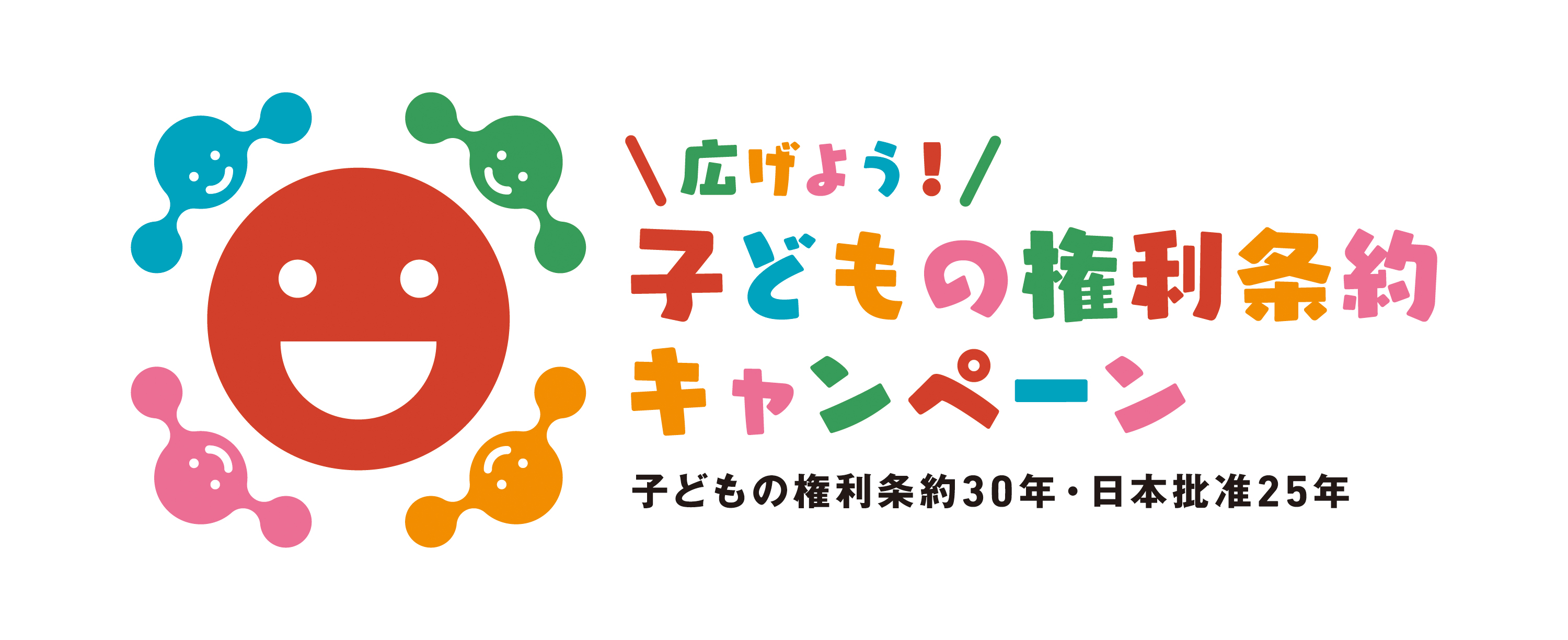●Network for the Convention on the Rights of the Child
Children and adults are partners who build present and future together
The globe is facing threats from hunger, environmental destruction and war, while Japanese society is shouldering various problems.
The Convention on the Rights of the Child implies that present and future adults can now act as partners who build the future together by mutual communication, understanding, and solution to problems.
The Network for the Convention on the Rights of the Child stands on the ground that “children and adults should work together on building the brighter future.” It continues activities that lead to the implementation and promotion of the convention with an aim for the society that respects children’s expression and participation.
For our society and children’s future, we are looking forward to everyone’s participation, including children.
NCRC organizes these activities
Support for child expression and participation
■We support child participation, including financial support such as waiving event fee and assisting in travel expense.
■As a new trial for children, we continuously support “workshop delivery”, where steering committee members facilitate in.
Learning and opinion sharing
■We organize seminars on “CRC basic course” to deepen knowledge about the convention from its very basis and on a variety of child related issues looking from the convention ground.
■We organize courses (beginner, training, practice and exchange) for facilitators whose work is related to children
Information network
■We publicize a quarterly newsletter in 12-page-A4 size, called “Kodomo no kenri jouyaku” (CRC). It includes articles about the convention, current international issues on child rights, efforts by local areas and autonomies, and child participation in practice.
To celebrate issue 100, we also publish a small booklet to promote and create understanding about the convention.
■We occasionally inform about event guide and details monthly on the website and in e-news.
Cooperation with NPO/NGO and the government
■We follow up with local autonomies and child policies for the enactment of the CRC or the revision of law, especially systems to receive and consider communications from individuals(Third Optional Protocol) and the Children and Youth Rearing Support Act.
■Since 1992, we have been actively participating internationally such as observing in the Committee on the Rights of the Child’s meeting.
CRC Forum
■Since 1993, NCRC has organized “CRC Forum” in November every year in order to promote and implement the convention by a talk and discussion with domestic and international NPOs, local groups and autonomies, and the government. We have so far widely exchanged with people from 14 prefectures: Tokyo, Osaka, Kanagawa, Fukuoka, Gunma, Aomori, Chiba, Hyogo, Ibaraki, Shiga, Kumamoto, Nagano, Mie, and Toyama.
■In year 2010, which marks our 18th year, we will hold CRC Forum 2010 in Miyagi on 13-14 November (Sat-Sun). As the organizer, NCRC will cooperate with local steering committees and support child participation or subcommittee in order to practice CRC ideology.
To mark 20th year of CRC’s international implementation in 2010, we will stand for promoting and creating understanding of the convention.
Your participation supports our activities
Member Application
As long as you are interested in the CRC or child related problems, you can apply. Everyone, including children, is encouraged to become our members.
Member privilege
・Four issues of newsletter yearly
・Discount for event participation fee (free of charge for children and students)
・Discount for publication
How to apply
Deposit the fee to our post office account (see below) and fill in member section. We also welcome any fund.
Annual fee
・General 5,000 yen ・Student 3,000 yen ・Children 1,000yen
・Executive 10,000 yen
Lecturers and Facilitators Introduction
In order to get the meaning and content of the CRC across, we do introduce lecturers and facilitators to school and university students, government officers and NPO workers, and sometimes in accordance with local circumstances.
Activity direction and budget are considered yearly at general meeting. Concrete activities are managed by approximately 20 steering committee members.
Representative Akito Kita
Vice Representative Shigeto Aramaki
Head of Secretariat Etsuko Araki
(Established on November 17, 1991)
